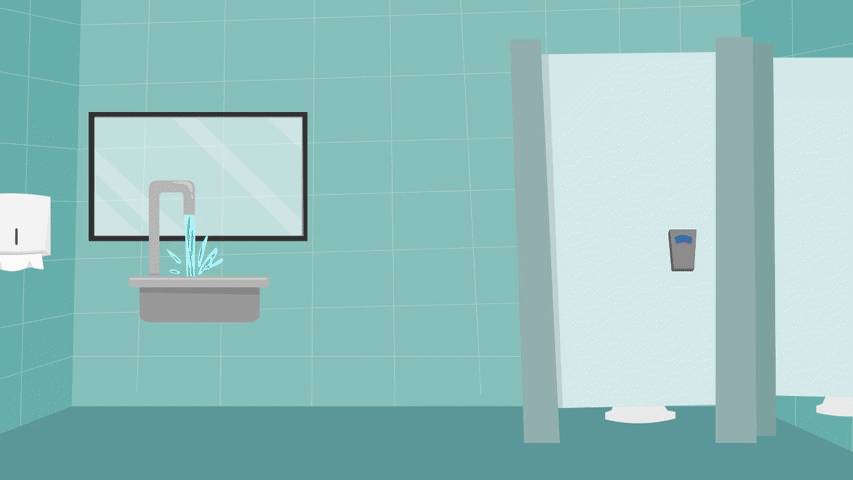This module is about making and adapting mission plans for anxiety targets that can be especially difficult for people with autism.
Some people with autism can be more sensitive to sounds, visuals, or how things feel. For example, lots of people feel overwhelmed by loud noises, bright lights, or how certain clothes feel. For some, it can also be difficult when their routines or schedules change. When anxiety is related to these things, mission plans need to be adapted.
In this module, we will tell you more about how to make mission plans for anxieties that are related to autism. If you and your parent have decided that this topic does not apply to your family, feel free to skip ahead to the next module.
Things to think about when working on anxiety related to autism
Many people with autism are sensitive to sounds or visuals. For example, let’s look at Sally.

Sally is afraid of public restrooms. She is afraid of public restrooms because of germs and getting sick. However, she also doesn’t like public restrooms because of loud noises that she can hear there (like toilets flushing and automatic hand driers). So, a mission plan for her fear of public restrooms needs to address both areas, germs and sounds.
Many people with autism also feel anxious when they need to make changes in their routines or schedules. For example, let’s look at Neil.
Neil feels anxious when there are changes in his life he does not expect. He doesn’t like any surprises and gets frustrated when his schedule changes. This difficulty with change can be both related to anxiety and autism.
In LUNA, you do not have to work on anxiety that is more closely related to autism unless it starts causing problems for you.
For example, having a routine and sticking to it can be very helpful for people to prepare for the day and stay organized. However, having a routine and really wanting to stick to it can become a problem too. For example, if you are always late to school because your morning routine takes a long time, or if you cannot visit your family on the weekend because you don’t want to have a different morning schedule, then this might become a problem.
If you and your parent think you have those sorts of problems with changes in your routine, make a mission plan that can help you be flexible and do the things you’d like to do. If you and your parent do decide to work on mission plans that are related to changes in routine or sensory sensitivity (feeling anxious with certain sounds, visuals, or feelings), these mission plans can be a little tricky. On the next pages, we are going to tell you how you can make these mission plans work well.
How to adapt mission plans for anxiety that is related to autism
Carefully decide what your mission plan goal will be.
Your mission plan goal should be what you feel comfortable with and what you would like to achieve in your life. For example, if you are making a mission plan for anxiety that is related to being sensitive to sound, your mission plan goal could be being in loud situations like school assembly or public restrooms (like Sally) with the help of noise-cancelling headphones.
Think about tools or supports that you can use to achieve your mission plan goal.
For example, if your mission plan is targeting fears of change, you can discuss with your parent and include things that will help you achieve your mission plan goal. It could be something like setting an alarm that lets you know when you need to change to something new, your parent giving you early notice that things will change, or other warnings. Talk with your parent about what will make it easier for you to work on a mission plan. It is important to let them know your opinions as they might not be able to know right away.
Make your steps even more gradual.
Get creative with your mission plan steps and make them as gradual as possible. This will help you get used to your fear more easily. For example, if you are afraid of fireworks and loud noises, one of your steps could be listening to sounds of fireworks on your phone or watching a video of fireworks instead of waiting for Fourth of July or New Years.










